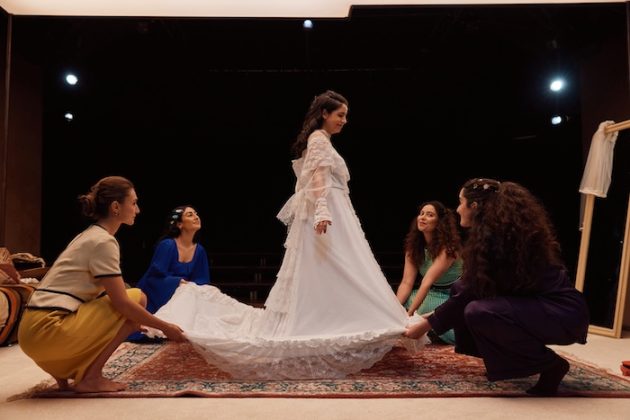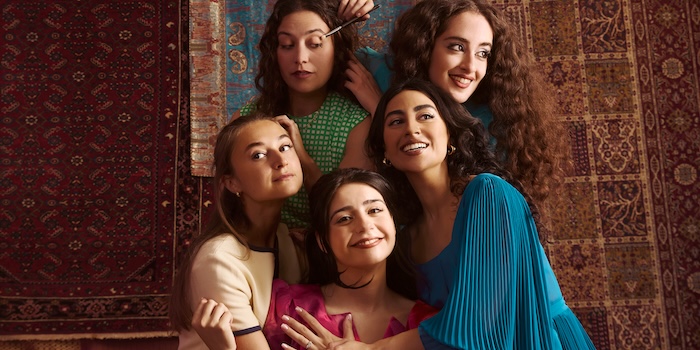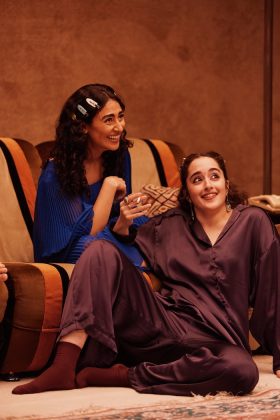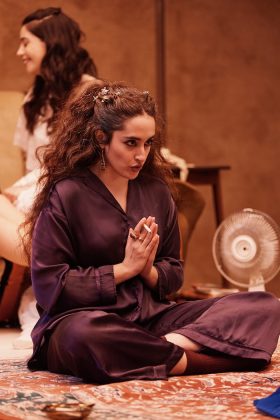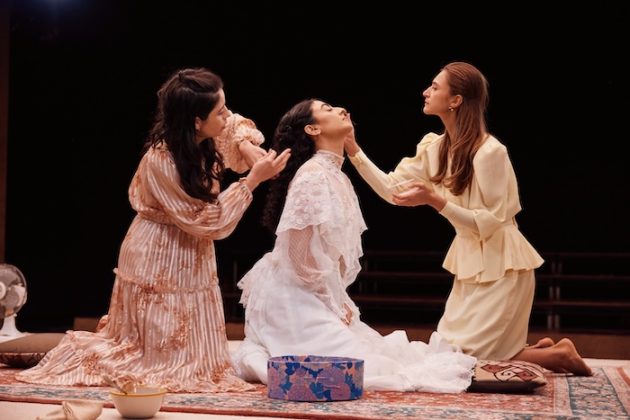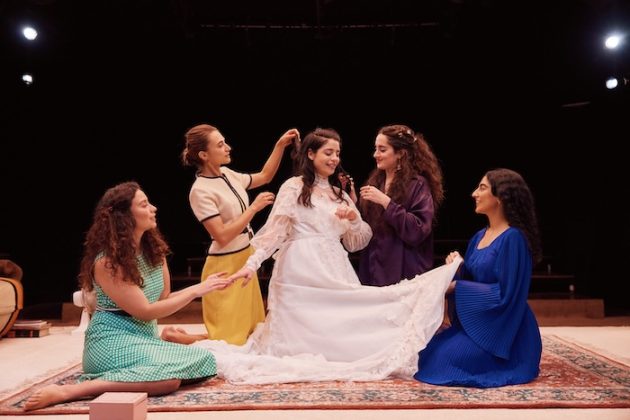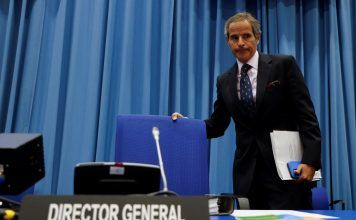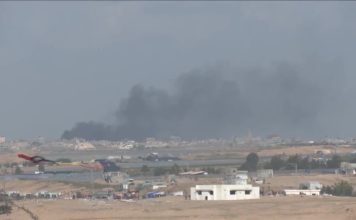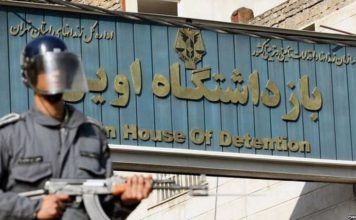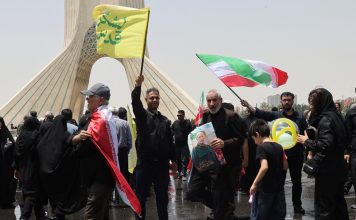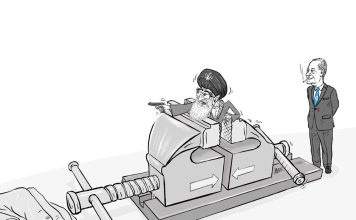By Firouzeh Nabavi
The Iranian-American playwright Sanaz Toossi – who won the Pulitzer Prize for Drama last year for her play “English,” about a class of English language students in Karaj, west of Tehran – is back on the London stage with her new play: “Wish You Were Here.”
The comedy-drama is set in a living room in Karaj, and explores the evolving relationships of a group of five women between 1978 and 1991, whose lives and friendships change on account of marriage, loss and sudden departures in the aftermath of the Iranian Revolution and the Iran-Iraq War.

The play, which premiered off-Broadway at Playwrights Horizons in 2022, is on at London’s Gate Theatre through November 23.
Toossi is an Iranian-American playwright, actor and director based in New York whose work explores themes of identity, displacement and the immigrant experience. Born in Tehran, she was raised in Orange County, California and has a B.A. in theater from UCLA and a Masters in playwriting from Columbia University.
“Wish You Were Here” is directed by the young Australian-Iranian playwright and director Sepy Baghaei, with a cast that includes Afsaneh Dehrouyeh (“Granite Harbour”), Maryam Grace (“Macbeth,” “The Postcard Killings”), Juliette Motamed (“We Are Lady Parts,” “Magic Mike’s Last Dance”), Isabella Nefar (“My English Persian Kitchen,” “Small City”) and Emily Renee (“The Power,” “Honesty”).
Baghaei was born and raised in Australia to Iranian parents who fled Iran in the 1990s. Her directing credits include “The Good Iranian” (Rug Entertainment), “Habibti Driver” (Octagon Theatre), “Sokhan Begoo” [“Speak Up”] (Royal Court), and “Little Women,” “Citizen” and “Wilde Tales” (The Space).
In a recent interview with Kayhan Life, Baghaei shed light on her career and upbringing, and her staging of “Wish You Were Here,”
“Wish you were here” is a historical drama set in Iran that starts in 1978 and spans 13 years. Growing up in Australia, how much were you exposed to events in your parents’ homeland that occurred long before you were born — from the 1979 Revolution to the U.S. Embassy hostage crisis to the Iran-Iraq War?
Truthfully, I was actually quite sheltered from the realities of the political situation in Iran when I was growing up. It was only really when I was in my late teens that I began to learn about things like the Revolution and the war. I travelled to Iran once when I was a young child and remember visiting one of the Shah’s palaces and hearing a talk about the monarchy that previously existed in Iran. That was about all I knew about Iranian politics for many years.
I only really started to do my research and learn more after watching the film adaptation of “Persepolis” by Marjane Satrapi. It opened my eyes to the events which forced many Iranians — my parents included — to leave their homeland.
The play looks at political oppression through the domestic lens of lost love and friendships. Did you hear about that oppression growing up, from your parents, family and friends?
I remember hearing stories from my parents about their journey of leaving Iran: the people they left behind and the people they met along the way. Having had the privilege of a peaceful upbringing in Australia, and now living in the UK, I will never truly be able to comprehend the pain and loss of leaving behind friends, family and a home against your will.
But through working on “Wish You Were Here,” I feel like I’ve been able to access some of the joy, warmth and love of what it must have been like for my family — and many others like them — to grow up in Iran, despite the seismic changes that happened during the period the play is set in.
What was it like growing up as an Australian-Iranian? Were you rooted in Persian culture — the language, the cuisine, the music, the traditions and celebrations? Did your upbringing help you grasp Persian culture and society, despite having spent little time in Iran?
I was raised in a household very much rooted in Persian culture. I was taught the language, painted my eggs for the traditional haftsin table set every year at Norouz [the Persian New Year], and spent time around other Iranian families at regular mehmoonis [parties]. My family took great pride in instilling the Persian culture in our home, despite the fact that we were living on the opposite side of the world. Although I may not have always appreciated certain elements at the time — I really struggled with learning to read and write in Farsi! — I am incredibly thankful for it now.
What are your memories of Iran, and how old were you when you traveled there?
I visited Iran once when I was eight years old. I mostly have memories of time spent in the homes of family and friends: sitting at the sofreh [dining table], eating beautiful home-cooked meals, meeting a huge number of cousins, aunts and uncles — and seeing snow for the first time! Even though I was so young, I remember that when I found out I’d be visiting, I had the feeling that I was going home, or going to somewhere I needed to go. It was a surreal experience at the time, and one that feels bittersweet looking back on it with many years’ distance.
Given your already prolific, decade-long career as a writer, assistant director, and director, how would you describe your experience of directing Sanaz Toossi’s play “Wish You Were Here”?
The experience of directing Wish You Were Here has been one of immense pride and has pushed me to really dig deep in terms of the emotional weight it carries. The play is funny and moving in equal measure. I am such a big fan of stories that use humor as a means to help the audience access weightier themes and questions. I feel that Sanaz has done an amazing job to invite audiences into a side of Iran and Iranian women rarely seen onstage: her characters are warm, loud, bold, complicated, brave, messy, joyous, and most of all, loving. They are also deeply relatable, no matter where you come from and what you believe. So I hope audiences leave having seen a bit of the women in their lives in the characters of “Wish You Were Here.”
Did you select the five cast members yourself?
I had the pleasure of working with casting director Nadine Rennie to bring together our cast. Each of these women has Iranian heritage, and as a cast, they represent what I believe to be one of the most beautiful aspects of Iran: we are a diverse nation, with many different ethnic groups, faiths, languages and characteristics between us. All of these actors have been incredibly busy across stage and screen in recent times.

